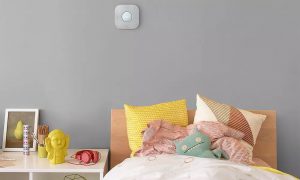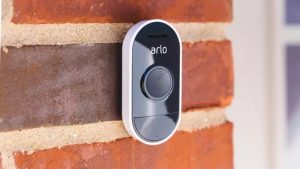Assisted Living & Smart Technology
For people living with a disability, a support system is important. This includes caregivers, family and a home that has been modified to accommodate the needs of the occupant, which may include reduced mobility, issues with vision, risk of falls and much more. Smart home devices can be an invaluable tool to help people with disabilities live independently.
Smart technology can be a great source of support when no-one else can be there, helping to assist with daily tasks and promote safety. They are usually simple to set up and have lots of handy integrations with smartphones, tablets, and smartwatches. Here are some features that are helpful to both home occupants and caregivers:
- Being remotely accessible so that caregivers can access things even when they aren’t in the home
- Simple operation to ensure they don’t cause more problems than they solve
- Unobtrusive design so that the individual doesn’t feel their privacy is being invaded by the presence of these devices
With all that in mind, here are some of the best smart home devices to help with assisted living:
Security
A smart security system does more than just alert you when there has been a break-in. It can also remind you if a door/window has been left open, notify you when someone is coming or going, and alert you when food is burning on the hob. The Ring Alarm 5-Piece Kit, available from Amazon, is a great way to build a security system. The starter kit includes a base station, keypad, door/window sensor, motion detector and a range extender. You can build on this core system to make it work exactly the way you want it to.
Smoke detectors
Working smoke detectors are important, and a smart one will deliver an audible siren in the house and send smartphone alerts to caregivers for added safety. The Google Nest Protect is a great option which also acts as a carbon monoxide detector and connects easily to the Google Home app.

Emergency contact systems
The classic emergency contact system is a wearable electronic device with a panic button for fall alerts. The Amazon Echo Dot, which has a great number of features for entertainment and practical applications, runs on the Alexa voice-control platform. If someone has a fall, they can simply shout “Alexa, call …” and notify a loved one or caregiver of the situation. If money is not an object, the Apple Watch Series 5 can detect falls and even certain cardiac events automatically and call for help.
Smart locks
If there is a concern about someone remembering to lock the front/back door, a smart lock enables it to be done remotely. The Wyze Lock is a simple option designed to work with an existing deadbolt. It also features the ability to auto-lock when the door is closed and send a notification when a door has been left open.
Doorbells
A smart doorbell like the Arlo Video Doorbell provides an alert when people, packages, animals and cars go by. The wide-angle lens ensures you get a full picture of who is there, helping the user feel safe and secure in their home.

Smart plugs
These are a great way to ensure heaters are turned off and necessary lights stay on, for example. The Wyze Plug can be inserted into any outlet and connects seamlessly to Amazon Alexa, Google Assistant and its very own app.
Smart lights
With smart lights, lighting can be put on a schedule, triggered by movement, or simply turned on/off remotely. They help with safety and independence, and one superb option is the Lutron Caséta Wireless In-Wall Dimmer. It connects with all the most popular smart home devices and includes a simple keypad for interacting with lights manually. Another good option is the Wyze Bulb.
Specialist phones
For people who struggle to use a normal smartphone, something like the Doro Secure 580 Simple Mobile Phone can help. Simple backlit buttons can be assigned with important contact numbers and a clear, simplified display making it easier to use. Certain disabilities make standard smartphones difficult to use, so it is worth considering an alternative to ensure the user has a way of staying in touch.
These devices will help with safety and independence by providing extra functionality whilst enabling caregivers and loved ones to monitor important things remotely. Many also offer fun features like listening to music and browsing the internet, helping to enrich the life of someone who must spend longer periods indoors. Technology to help people in the home is constantly evolving and it presents an excellent opportunity to make life easier for disabled people and those who care about them.


